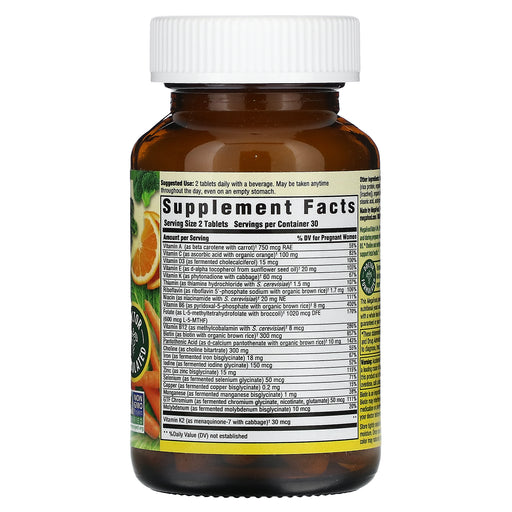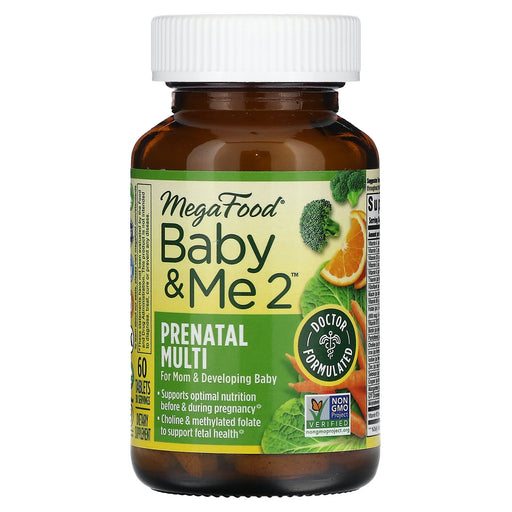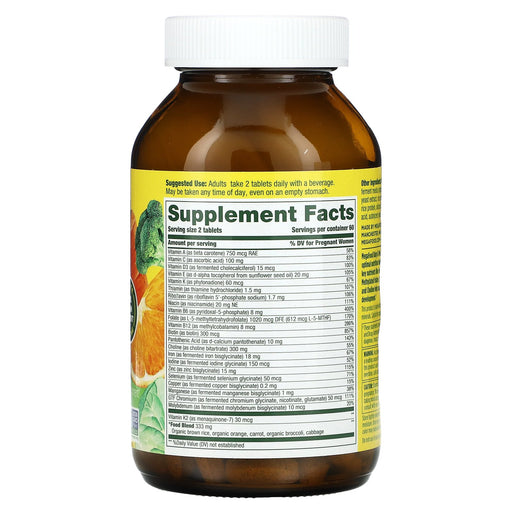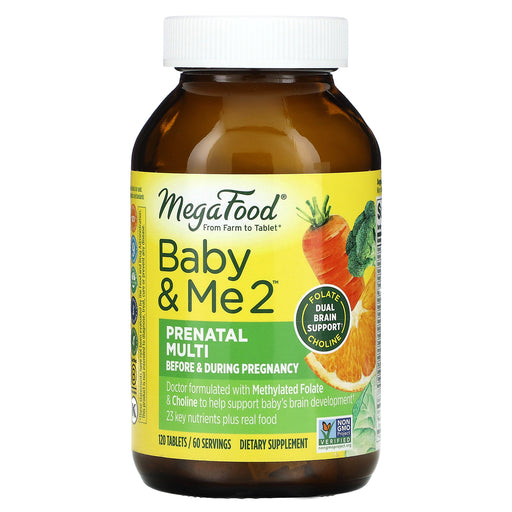
Supporting Optimal Health for Mother and Baby with Pre & Post Natal Formulas
Proper nutrition is essential during pregnancy and the postpartum period to support the health and well-being of both mother and baby. Pre and post natal supplement formulas are specifically designed to meet the unique nutritional needs of women during these crucial stages, ensuring optimal nutrient intake for fetal development, maternal health, and postpartum recovery.
The Importance of Nutrition During Pregnancy and Postpartum
During pregnancy, a woman's nutritional needs increase significantly to support the growth and development of the fetus, as well as to maintain her own health. Key nutrients like folate, iron, calcium, and omega-3 fatty acids are essential for fetal brain development, skeletal formation, and overall maternal well-being.
Postpartum nutrition is equally important, as it helps support the mother's recovery from childbirth, promotes healthy lactation, and aids in maintaining overall health during the demanding period of caring for a newborn. Pre and post natal supplement formulas are designed to fill potential nutrient gaps and ensure optimal nutrition during these critical times.
Key Nutrients in Pre & Post Natal Formulas
Pre and post natal supplement formulas typically include a targeted blend of essential vitamins, minerals, and other nutrients that are crucial for maternal and fetal health. Some of the most important nutrients found in these formulas include:
- Folate (Methylfolate): This B vitamin is essential for proper fetal neural tube development and helps prevent birth defects like spina bifida. Look for formulas that contain the active form of folate, methylfolate, for optimal absorption and utilization.
- Iron: Pregnant women have increased iron needs to support fetal growth and prevent maternal anemia. Iron is crucial for the production of hemoglobin, which carries oxygen to the fetus.
- Calcium: Adequate calcium intake is necessary for fetal skeletal development and to maintain maternal bone health, as the fetus draws calcium from the mother's bones.
- Vitamin D3: This vitamin works synergistically with calcium to support bone health and plays a role in immune function and fetal development.
- Omega-3 Fatty Acids (DHA and EPA): These essential fatty acids support fetal brain and eye development, as well as maternal mood and cognitive function.
- Choline: This nutrient is important for fetal brain development and may help improve pregnancy outcomes.
- Iodine: Iodine is essential for healthy fetal thyroid function and brain development, and deficiency during pregnancy can lead to cognitive impairments in the child.
Benefits of Pre & Post Natal Supplement Formulas
Incorporating pre and post natal supplement formulas into your health routine during pregnancy and postpartum may offer several potential benefits, including:
- Supporting Fetal Development: These formulas provide essential nutrients that are crucial for healthy fetal growth, brain development, and skeletal formation.
- Reducing the Risk of Birth Defects: Adequate intake of key nutrients like folate and choline can help reduce the risk of neural tube defects and other birth defects.
- Promoting Maternal Health: Pre and post natal formulas support the mother's increased nutritional needs, helping to maintain overall health, energy levels, and well-being during pregnancy and postpartum.
- Supporting Postpartum Recovery: These formulas can help replenish nutrient stores depleted during pregnancy and support the mother's recovery from childbirth.
- Enhancing Lactation: Some nutrients in pre and post natal formulas, such as omega-3 fatty acids and calcium, may help support healthy lactation and breast milk quality.
Choosing the Best Pre & Post Natal Supplement Formula
When selecting a pre or post natal supplement formula, consider the following factors to ensure you choose a high-quality product that meets your needs:
- Comprehensive Nutrient Profile: Look for formulas that contain a wide range of essential nutrients, including folate, iron, calcium, vitamin D3, omega-3 fatty acids, choline, and iodine, at levels that meet or exceed the recommended daily allowances for pregnant and lactating women.
- Bioavailable Forms of Nutrients: Choose formulas that use highly bioavailable forms of nutrients, such as methylfolate instead of folic acid, and chelated minerals for optimal absorption and utilization.
- Quality and Purity: Opt for supplements that are manufactured by reputable brands, free from contaminants and harmful substances, and third-party tested for purity and potency.
- Specific Needs and Preferences: Consider your individual needs and preferences, such as vegan or allergen-free formulas, and consult with your healthcare provider to determine the best supplement for your unique situation.
- Brand Reputation: Select supplements from trusted brands with a history of producing high-quality, science-backed prenatal and postnatal formulas, and a commitment to transparency and safety.
Maximizing the Benefits of Pre & Post Natal Supplement Formulas
To get the most out of your pre or post natal supplement formula, consider the following tips:
- Start Early: Begin taking a prenatal supplement formula as soon as you start trying to conceive, or at least one month before conception, to ensure optimal nutrient levels during early fetal development.
- Continue Postnatal Supplementation: Continue taking a postnatal supplement formula for at least six months after giving birth, or as long as you are breastfeeding, to support your own health and the quality of your breast milk.
- Pair with a Balanced Diet: While pre and post natal supplement formulas can help fill potential nutrient gaps, they should be used in conjunction with a balanced, nutrient-dense diet rich in whole foods, fruits, vegetables, lean proteins, and healthy fats.
- Stay Hydrated: Drink plenty of water throughout the day to support optimal nutrient absorption and overall health during pregnancy and postpartum.
- Follow Dosage Instructions: Always adhere to the recommended dosage on the product label, and consult with your healthcare provider before starting any new supplement regimen, especially during pregnancy and postpartum.
Invest in Your Health and Your Baby's Future with Pre & Post Natal Supplement Formulas
Choosing a high-quality pre or post natal supplement formula is an investment in your own health and your baby's future. By providing essential nutrients that support optimal fetal development, maternal well-being, and postpartum recovery, these formulas can help you navigate the extraordinary journey of pregnancy and motherhood with confidence and vitality.
Explore our curated selection of premium pre and post natal supplement formulas and experience the difference that targeted, science-backed nutrition can make in your life. With a commitment to quality, efficacy, and your unique needs, Health Orchard is here to support you every step of the way as you nurture your growing family.
Frequently Asked Questions about Pre & Post Natal Formulas
1. When to start taking postnatal vitamins?
Postnatal vitamins should be started as soon as possible after giving birth, ideally within the first few days postpartum. They are especially important for women who are breastfeeding, as they help support the increased nutrient demands of lactation and ensure that both mother and baby are getting the necessary vitamins and minerals. Postnatal vitamins should be continued for as long as breastfeeding continues, or for at least 6 months postpartum for non-breastfeeding mothers.
2. What is postnatal supplement?
Postnatal supplements are vitamins and minerals specifically formulated to meet the unique nutritional needs of women after giving birth. They are designed to:
- Support postpartum recovery and healing
- Enhance energy and mood
- Support lactation and breastmilk quality (for breastfeeding mothers)
- Replenish nutrient stores depleted during pregnancy and childbirth
Key nutrients in postnatal supplements often include iron, vitamin D, calcium, omega-3 fatty acids, and B vitamins.
3. What are the most important postnatal vitamins?
The most important postnatal vitamins and minerals include:
- Iron: To replenish stores lost during childbirth and support postpartum energy levels
- Vitamin D: To support calcium absorption, bone health, and immune function
- Calcium: To support bone health and breastmilk production (for breastfeeding mothers)
- Omega-3 fatty acids (DHA): To support mood, cognitive function, and infant brain development (for breastfeeding mothers)
- B vitamins (especially vitamin B12 and folate): To support energy metabolism and red blood cell production
- Choline: To support cognitive function and infant brain development (for breastfeeding mothers)
- Zinc: To support immune function and postpartum tissue repair
A comprehensive postnatal supplement should include these key nutrients in sufficient amounts to meet the increased demands of the postpartum period.
4. What are the most important supplements for prenatal?
The most important prenatal supplements include:
- Folic acid: To support neural tube development and prevent birth defects
- Iron: To support increased blood volume and prevent anemia
- Calcium: To support fetal bone development and maintain maternal bone density
- Vitamin D: To support calcium absorption and immune function
- Iodine: To support fetal brain development and thyroid function
- Omega-3 fatty acids (DHA): To support fetal brain and eye development
- Choline: To support fetal brain development and placental function
A comprehensive prenatal vitamin should include these key nutrients in sufficient amounts to meet the increased demands of pregnancy, along with other important vitamins and minerals like vitamin C, vitamin E, B vitamins, zinc, and magnesium.
5. What are prenatal vs postnatal supplements?
Prenatal and postnatal supplements are formulated to meet the distinct nutritional needs of women during pregnancy and after childbirth, respectively.
- Prenatal supplements: Focus on supporting fetal growth and development, preventing birth defects, and maintaining maternal health during pregnancy. Key nutrients include folic acid, iron, calcium, vitamin D, iodine, and omega-3 fatty acids (DHA).
- Postnatal supplements: Focus on supporting postpartum recovery, lactation, and the nutritional needs of both mother and baby (if breastfeeding). Key nutrients include iron, vitamin D, calcium, omega-3 fatty acids (DHA), B vitamins, choline, and zinc.
While there is some overlap in the nutrients included in both types of supplements, the amounts and ratios may differ to reflect the unique demands of each life stage.
6. What prenatal vitamins are good for postpartum?
Some prenatal vitamins can be continued postpartum, as they often contain key nutrients that are also important for postpartum recovery and lactation. However, it's important to choose a prenatal vitamin that meets the specific needs of the postpartum period, such as:
- Higher amounts of iron to replenish stores lost during childbirth
- Adequate amounts of vitamin D, calcium, and omega-3 fatty acids (DHA) to support breastfeeding and infant development
- B vitamins to support energy metabolism and mood
- Choline to support cognitive function and infant brain development
It's also important to note that some women may have different nutritional needs postpartum compared to during pregnancy, such as those with anemia or other health conditions. Consulting with a healthcare provider can help determine the best prenatal or postnatal vitamin for individual needs.














